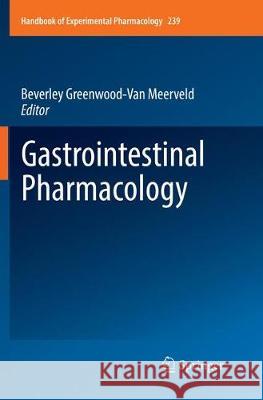Gastrointestinal Pharmacology » książka
topmenu
Gastrointestinal Pharmacology
ISBN-13: 9783319858951 / Angielski / Miękka / 2018 / 444 str.
Kategorie BISAC:
Wydawca:
Springer
Seria wydawnicza:
Język:
Angielski
ISBN-13:
9783319858951
Rok wydania:
2018
Wydanie:
Softcover Repri
Ilość stron:
444
Waga:
0.63 kg
Wymiary:
23.39 x 15.6 x 2.34
Oprawa:
Miękka
Wolumenów:
01
Dodatkowe informacje:
Wydanie ilustrowane











